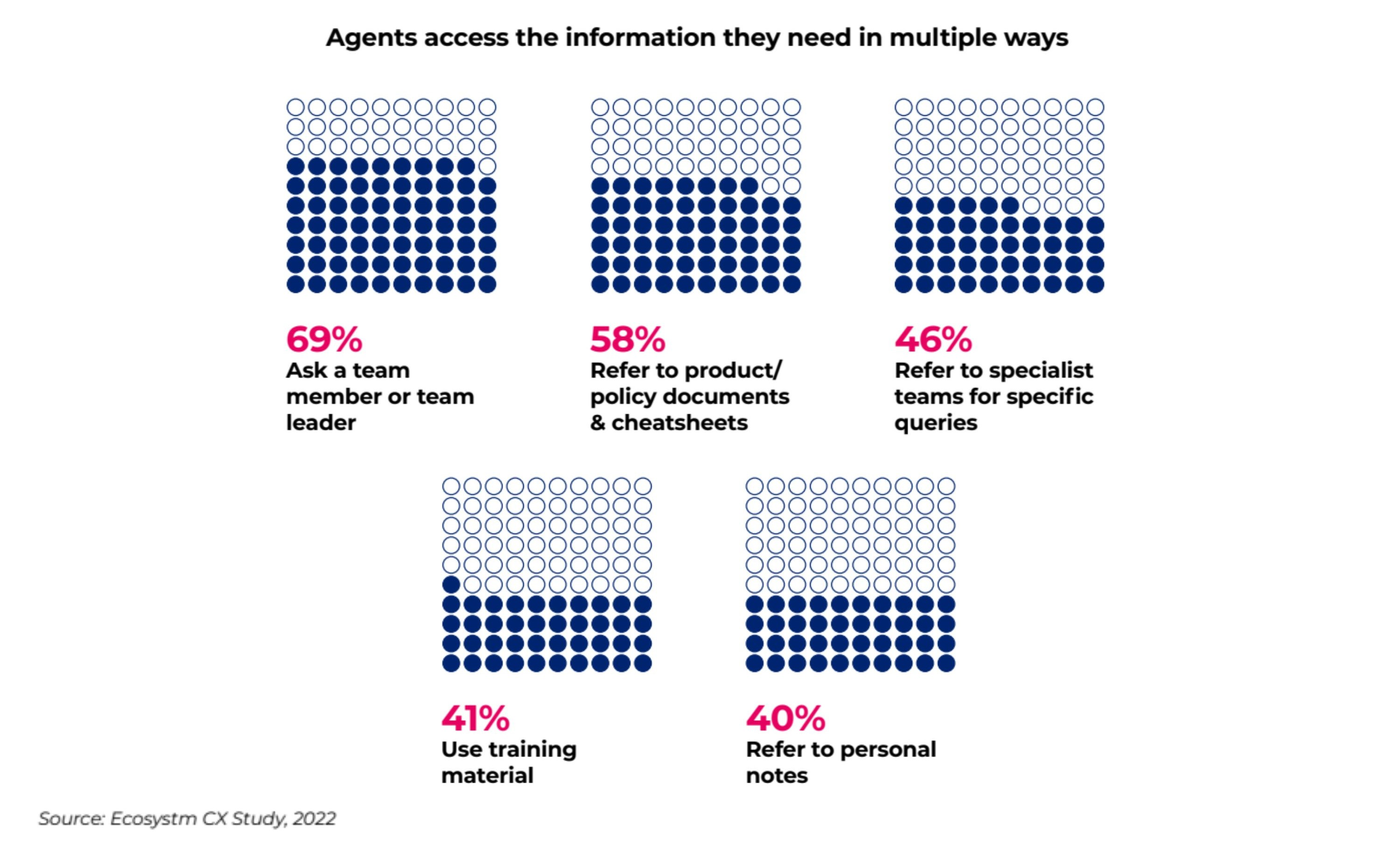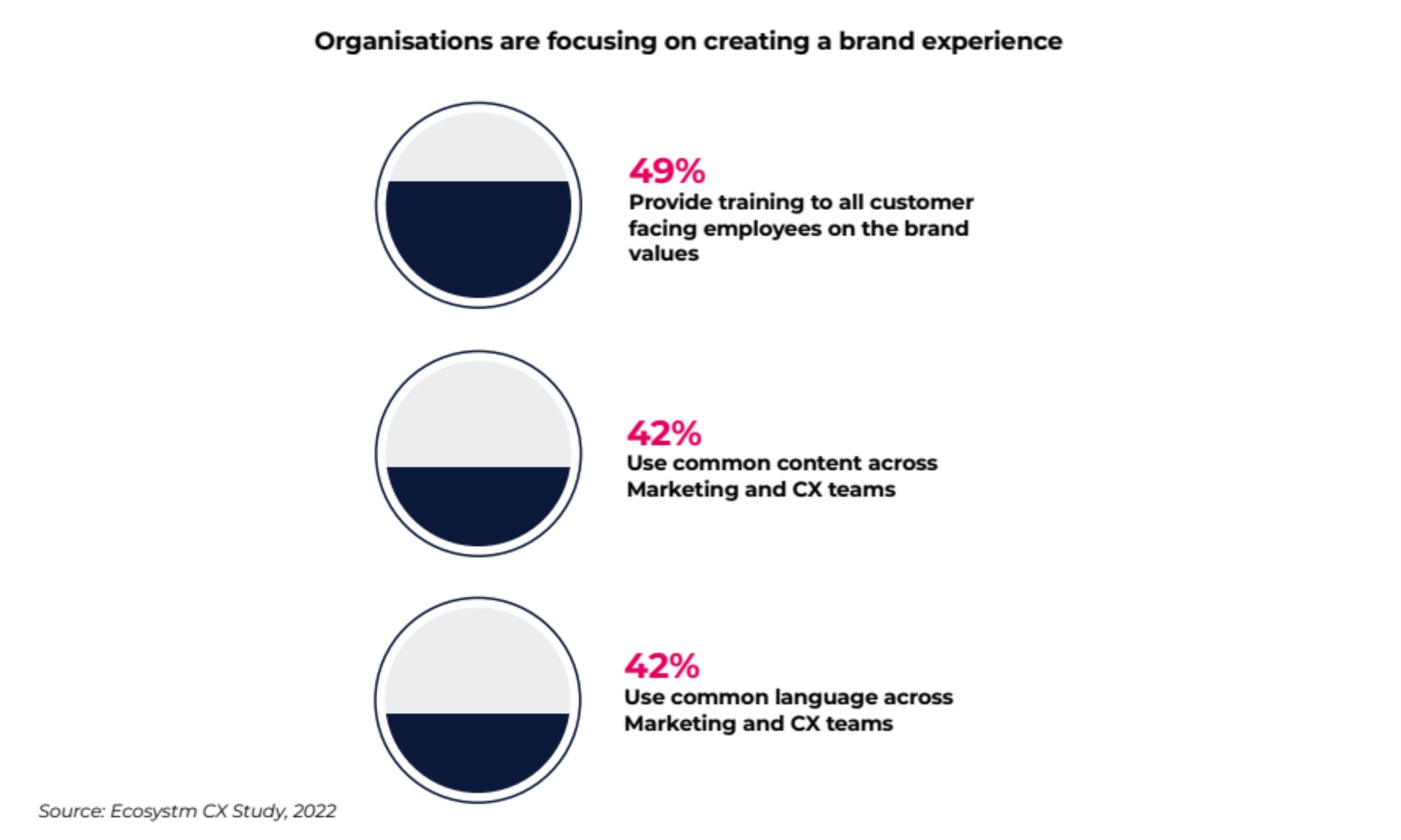Agents access information in many ways and if there is a lack of clarity about which information is reliable this can complicate their job and lead to inconsistent answers for customers. This puts stress on agents, particularly given they often need the right answer urgently.
A well curated knowledge system is one of the most important applications agents can have to improve their confidence levels and job satisfaction.
In this digital age, where brands are defined by their CX, building a knowledge system that delivers on expectations, needs, and promises, is crucial. Establishing a single, reliable source of all information and data will ensure consistent, positive experiences.
The benefits of doing so include better customer satisfaction ratings and improved employee engagement, which in turn improves compliance, boosts sales revenue and can lead to better business insights.
Our ebook proposes the following five-step framework to build a knowledge system that works, that keeps knowledge at the core of customer and employee experiences to benefit overall brand:


